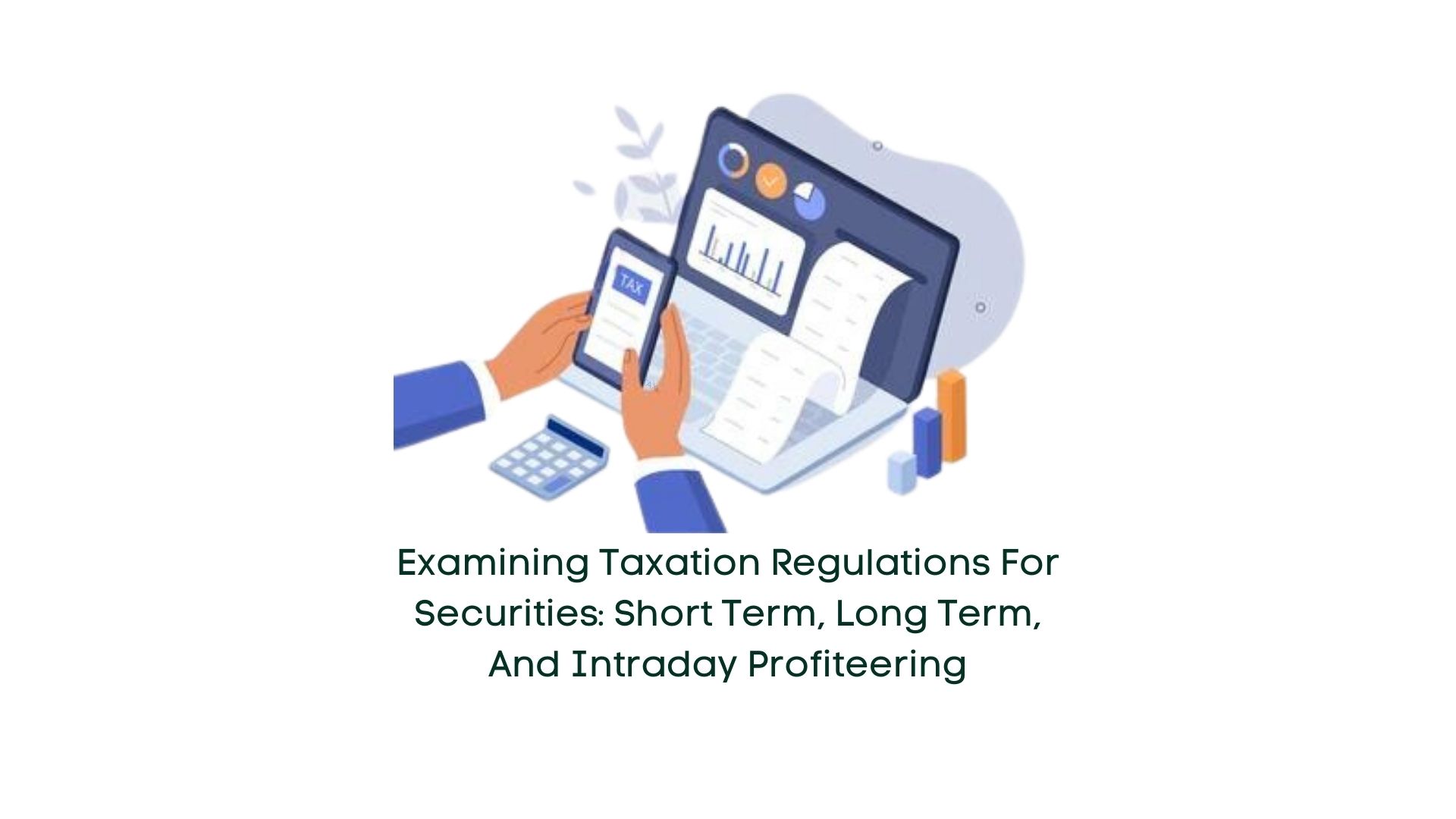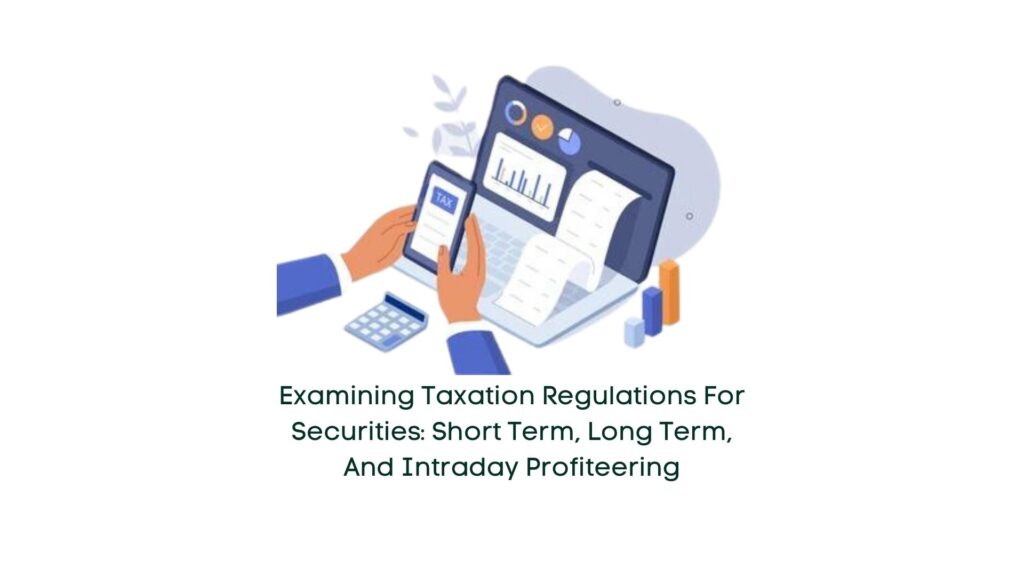
28 Feb Examining Taxation Regulations for Securities: Short Term, Long Term, and Intraday Profiteering

Stock market trading holds a distinctive position in India, requiring more than just luck. It demands experience to navigate the fluctuations effectively. Within this realm, investors can opt to hold securities for varying durations, from a day to several years, each with its own tax implications. Understanding these tax dynamics is crucial for successful traders. This article delves into the taxation nuances of securities across short-term, long-term, and intraday trading.
Defining Short Term, Long Term, and Intraday Trading:
Short-term capital assets are those held for less than one year, or two years for unlisted shares. Conversely, assets held beyond these periods qualify as long-term capital assets. Intraday trading involves buying and selling securities within the same trading day, often resulting in immediate gains or losses.
Taxation of Securities:
Short Term Capital Gain/Loss:
- Listed Securities: Taxable at 15%.
- Unlisted Securities: Taxed at applicable slab rates.
Key Points:
- Deductions under Chapter VI-A can be claimed.
- Short-term capital losses are carry-forwardable for eight years.
Long Term Capital Gain/Loss:
- Listed Securities: Taxed at 10% for gains exceeding Rs. 1,00,000.
- Unlisted Securities: Taxed at 20% with indexation benefit.
Key Points:
- Deductions under Chapter VI-A are not applicable.
- Long-term capital losses can be carried forward for eight years.
Intraday Trading:
Income from intraday trading is treated as business income and taxed according to applicable slab rates.
Income Calculation and Tax Audit:
- Revenue minus expenses determines intraday trading income.
- Tax audit mandatory if trading exceeds Rs. 5 crores or certain conditions are met.
Carry Forward and Set-off of Losses:
- Intraday trading losses can be carried forward for four assessment years.
Conclusion:
This article elucidates the taxation intricacies of short-term, long-term, and intraday trading in securities. While short-term and long-term gains are subject to specific rates, intraday trading falls under slab rates. The methodology for income calculation differs among these categories, with considerations such as indexation in long-term gains. This knowledge is indispensable for traders, ensuring compliance with tax regulations and the payment of applicable taxes.


No Comments